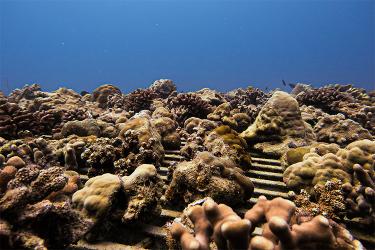Students and teachers across the Chesapeake Bay watershed will benefit from meaningful educational experiences on and along the water, thanks to more than $2 million in environmental education grants recently awarded by the NOAA Chesapeake Bay Office.
At an event held today at the Howard County Conservancy in Woodstock, Maryland, NOAA announced that 12 institutions in Maryland will receive a total of roughly $850,000 in fiscal year 2015 funding through the Chesapeake Bay Watershed Education and Training (B-WET) program, while 13 Virginia programs will share nearly $1.1 million. In Pennsylvania, four projects will receive a total of $302,000; in Delaware, one project will receive $44,000; in New York, one project will receive $75,000; and in Washington, D.C., one project will receive $87,000.
“Public investments in environmental stewardship often have the maximum benefit when they are partnered with private-sector initiatives. The NOAA B-WET grants are an excellent example of a program that successfully leverages the full potential of public-private partnerships to heal the Chesapeake Bay,” said U.S. Senator Ben Cardin of Maryland, a senior member of the Senate Committee on Environment and Public Works. “The Howard County Conservancy will use this grant to involve thousands of schoolkids in hands-on lessons on the environment, while generating quality data about the health of our local waters. This collaboration is a clear winner all around.”
B-WET is an environmental education program that supports locally relevant, experience-based learning for grades K–12. It is a competitive funding program that promotes meaningful watershed educational experiences that help students understand, protect, and restore the Chesapeake. Funded projects include rigorous academic learning that helps connect students with the Bay and reinforces responsible citizenship and academic achievement.
“Field-based STEM education activities, like those funded by B-WET, are a critical part of NOAA’s education portfolio,” said Louisa Koch, director of NOAA’s office of education. “There is growing evidence that these types of activities contribute to understanding of and commitment to environmental conservation and stewardship, which is core to NOAA’s mission.”
“Helping today’s students in the watershed become tomorrow’s stewards of the Chesapeake Bay means a healthier future for the Bay,” said Peyton Robertson, director of the NOAA Chesapeake Bay Office. “As they learn about fish and other species that live in the Bay, they come to understand and care about how we depend on the Bay for our quality of life.”
Funded projects will support work by public school systems, universities, state agencies, outdoor learning centers, and nonprofit organizations located across both states to deliver high-quality outdoor educational experiences tied to classroom learning as well as teacher training.


